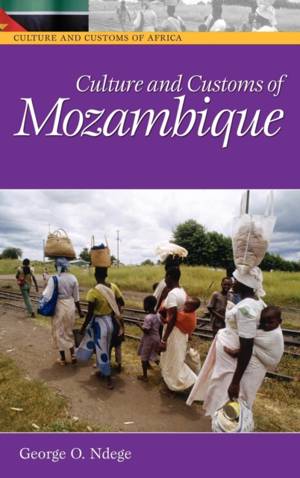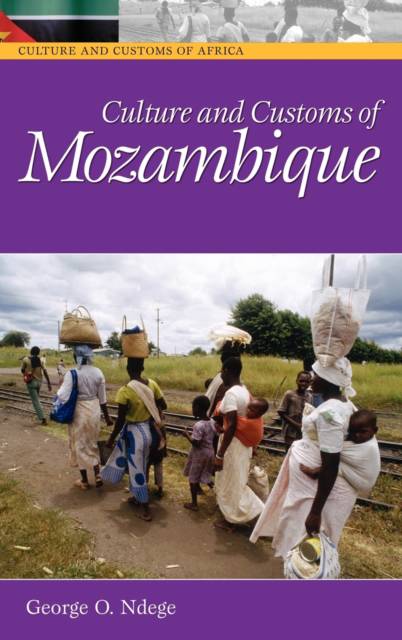
- Afhalen na 1 uur in een winkel met voorraad
- Gratis thuislevering in België vanaf € 30
- Ruim aanbod met 7 miljoen producten
- Afhalen na 1 uur in een winkel met voorraad
- Gratis thuislevering in België vanaf € 30
- Ruim aanbod met 7 miljoen producten
Zoeken
€ 103,45
+ 206 punten
Omschrijving
The decades-long civil war ended in 1992 in Mozambique, a southeastern African nation once ruled by the Portuguese The country now attracts foreign investment and has one of the fastest-growing economies in Africa. Culture and Customs of Mozambique is a timely overview of an important nation as it rebuilds. The thorough narrative is the most-up-date and authoritative source on Mozambique's society.
Ndege covers the land and history and especially clarifies the multiethnic society, which comprises sixteen ethnic groups, most of which are of Bantu origin. Each group speaks its own language, and some clans within each group speak different dialects of the same language. He discusses the migration of these groups into Mozambique from southern Africa and their absorption of disparate and small communities, as well as their diverse cultural customs and practices. Most important, the Zambezi valley, which has for centuries been a meeting place of many different societies, is significant in understanding the nature and pattern of settlement of various ethnic communities in modern-day Mozambique. Readers will learn about the young population and the migration to cities today. The importance of the family and the changes to the family and gender roles brought on by education, urbanization, migration, and religion are discussed. Other coverage includes the role of Islam and Christianity; the importance of art; indigenous, oral, and modern literature and media; a wide range of celebrations and leisure activities; ceremonies and cuisine; unique music and dance; and more.Specificaties
Betrokkenen
- Auteur(s):
- Uitgeverij:
Inhoud
- Aantal bladzijden:
- 168
- Taal:
- Engels
- Reeks:
Eigenschappen
- Productcode (EAN):
- 9780313331633
- Verschijningsdatum:
- 30/11/2006
- Uitvoering:
- Hardcover
- Formaat:
- Ongenaaid / garenloos gebonden
- Afmetingen:
- 159 mm x 236 mm
- Gewicht:
- 390 g

Alleen bij Standaard Boekhandel
+ 206 punten op je klantenkaart van Standaard Boekhandel
Beoordelingen
We publiceren alleen reviews die voldoen aan de voorwaarden voor reviews. Bekijk onze voorwaarden voor reviews.











